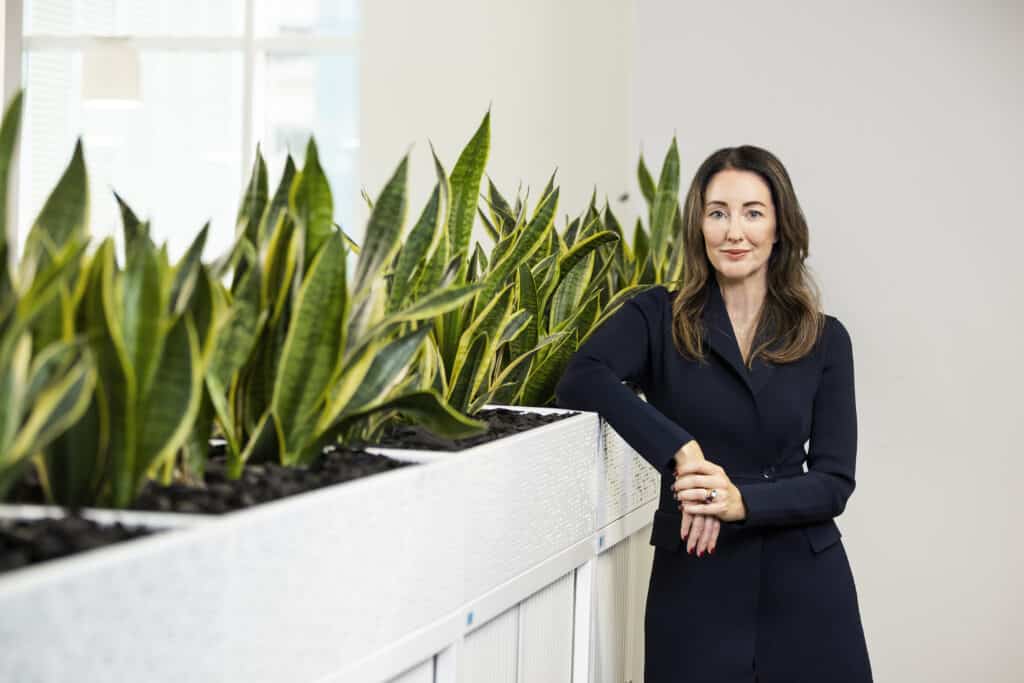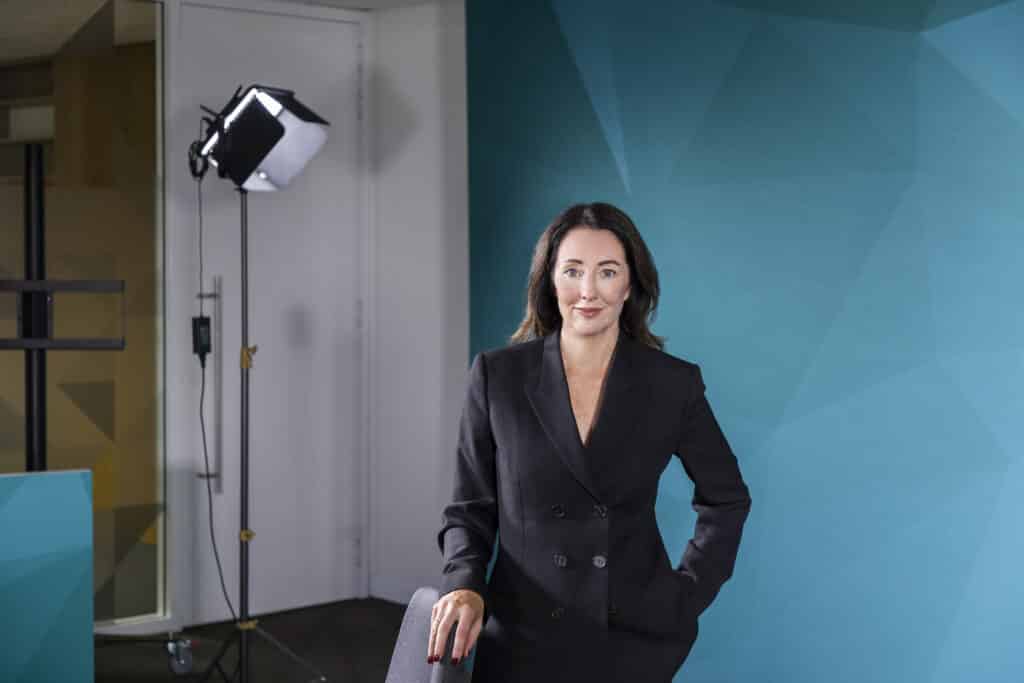When Mary Delahunty became exposed to super in her first job at share registry, Link Market Services, she realised it was the perfect industry. It was growing. It had big funds based in Melbourne where she lived. But most importantly, Super gave Delahunty the opportunity to have a bigger social impact.
Delahunty recently became Chief Executive Officer (CEO) of the industry’s peak body, the Association of Superannuation Funds of Australia (ASFA).
“Being able to advocate for a system and sector that benefits all Australians. Isn’t that the best job the world?” she says.
It is early days – Delahunty has been in the job just a week when we speak – but she is getting to work building on ASFA’s 60-year legacy by continuing to grow ASFA’s role as a policy and professional development powerhouse. She also wants to defend super against unnecessary policy and political interventions, to continue super’s strong role in ‘nation building’, and to complete some unfinished business around equity.
But Delahunty’s overall goal is even more ambitious: she wants every Australian to have a strong connection to the nation’s retirement system.

From Alvie to ASFA, local government and more
The youngest of seven children, Delahunty grew up in the tiny, rural town of Alvie in Western Victoria. “It’s got about six houses. And most are Delahuntys.”
Her parents were farmers heavily involved in the community, including local council, which gave Delahunty a keen sense of service. “I think you need people more in rural settings than you do in an urban setting.” (Her father turns 94 in three months but still plays sport because he loves the club and community atmosphere.)
As a teenager, Delahunty moved to boarding school in Melbourne and had to grow up quickly, but she loved the experience. After school, she studied Arts at the University of Melbourne, and later completed a Graduate Diploma of Financial Planning and then Masters of Applied Finance.
Her first job was client relationship manager at Link. “I had no idea that this [finance] world existed. I really did think finance and accounting were the same thing, I had no idea about the world of capital. But they gave me a job and it was a lot of fun.”
Being in local government reminded me of what everyday life is like for different people. And that better understanding of people makes you a stronger advocate for them in their retirement settings.
In 2013 Delahunty joined HESTA as General Manager Business Development and Policy. She then became Head of Impact, helping build the fund’s responsible investment practices. “We took it from a niche understanding to mainstream investment philosophy,” she says.
While at HESTA, and as she juggled raising a baby, Delahunty followed in her family footsteps with a stint in local government. She spent eight years as an elected official, including Mayor, of Glen Eira City Council municipality in Melbourne’s south-east, an area that has 150,000 residents.
The experience, an “honour”, allowed Delahunty to exchange lessons between local government and super. People from the corporate world can lift the professional approach of councilors, she says, but local council helps develop a deeper understanding of people. “There’s nothing quite like local government for being allowed into people’s lives.”
Ultimately, super is about “people’s dignity’ in their lives and retirement. “Being in local government reminded me of what everyday life is like for different people. And that better understanding of people makes you a stronger advocate for them in their retirement settings.”
Before joining ASFA, Delahunty founded Seven Advisory, an ESG consultant to institutional investors. When the chance to become CEO of ASFA came up, she knew that meant the end of the flexibility of self-employment, but Delahunty grasped the opportunity.
Expanding ASFA policy and professional development to provide greater industry support
Delahunty says she wants to expand ASFA’s work in its two key areas.
Firstly, in policy. She says ASFA’s unique proposition is to bring “thinking” and “positions” from its diverse membership base. “It’s almost a shortcut for policy makers,” she says. “When they’ve spoken to ASFA, they’ve spoken to the entire sector.”
ASFA has deep and unique technical expertise that helps with regulatory change. And Delahunty wants to ensure ASFA has the right structures to keep delivering that expertise because “there’s no one else who does that in the sector”.
The second area is professional development. Delahunty wants ASFA to understand what professional development members need for the future and deliver that. “ASFA is a Registered Training Organisation, this is critical to build the capability of the sector to better deliver outcomes for super fund members.
“We will make more investments into our well-regarded structured learning program and also expand our role as conveners of the sector. ASFA hosts events and summits to advance ideas and discussions, and bring experts together to solve common problems.”
When Delahunty looks broadly at super, she says the system is “the envy of the world”. It takes some of the burden off social security and has created a pool of capital that drives strong investment flows into companies and projects. “It’s quite a unique system and something that we should all be really proud of.”
But the industry still faces challenges, including “unprecedently large” and ongoing regulatory change. “It’s like drinking from a fire hose sometimes,” she says.
ASFA is a Registered Training Organisation, this is critical to build the capability of the sector to better deliver outcomes for super fund members.
While the industry is more than 30 years old, Delahunty notes there is also unfinished business around equity, including women with broken work-life patterns and the gig economy.
Another challenge is super’s interaction with politics. “Superannuation is and has always been an ideological battle sometimes, and as the funds and capital pool grows, that only grows in intensity.”
Delahunty says ASFA must make sure the settings that serve Australians so well “are safeguarded from change that might not serve them so well in the future”.
Creating prosperity for both portfolios and the nation
One area of heated debate is the social role of super, particularly investments in ‘nation-building projects’.
Delahunty says that since the origin of super, trustees have known their fiduciary duty is paramount. But they have also made investments that create prosperity for both their portfolio and the nation. “I would not expect that to change,” she says. “We’re not tempted by the narrative that there is some form of trade off and that people are putting their fiduciary duties aside, because that’s simply not happening.”
Delahunty notes that internationally there are many sovereign wealth and pension funds investing in assets such as electricity grids or affordable housing, who aren’t negating their fiduciary duties. “In Australia it’s important we’re able to open our eyes a little broader and to see that actually there is an investment return and a nation return. And that is to be championed.”
Every Australian has a stake in superannuation, whether they’re working or not, because every Australian has given something up in the form of either tax credits or public expenditure, for this system.
In our last Superfund’s profile, BlackRock Australia CEO, Andrew Landman, noted that the fund manager’s global CEO, Larry Fink, no longer used the term ESG, which has faced a backlash in the US.
Delahunty says BlackRock is right in thinking that the acronym has come to its useful end, though in isolation each letter makes more sense. “Perhaps the splitting up of ESG as terms speaks to the contemporisation or the maturity of the concept itself.”
But there is still enormous value in ‘responsible investment’, she says, because it ensures long-term value is being delivered by taking into account the risks in the three buckets, E, S and G. “As an example, it doesn’t take a rocket scientist to understand that long-term value could obviously be lifted in a company if it’s got strong governance practices.”
“We have to be clear-eyed about what it is that E, S and G actually is, and it’s a way of assessing risks and opportunities, which investment teams do all the time.”

Work, life and a big-picture vision for success
Delahunty has a big new job, which she juggles with raising the six children in her combined family. “I’m probably not the best poster child for balance. My children have always seen me working. I’ve campaigned for local government heavily pregnant. There’s really not a day that goes by that my children haven’t seen me working. They know that I love to work.”
Delahunty likes workplaces where people bring their “whole selves” to work. “I like to know about people’s families. I like to know about what drives them and what gets their juices flowing and what motivates them. And sometimes that means meshing together work and life.”
Post-Covid, the line between work and life has softened, she notes, and people have been allowed to be unapologetic about family commitments and more honest in the way they come to work. “I hope that is here to stay.”
So how will Delahunty know she has realised her vision and goals as CEO of ASFA? “It sounds quite lofty but it’s to do the best for all Australians.”
“Every Australian has a stake in superannuation, whether they’re working or not, because every Australian has given something up in the form of either tax credits or public expenditure, for this system.”
“I think we’ll know we have succeeded – although the work will always be ongoing – when people everywhere in Australia feel connected to their retirement savings, and they feel connected to the way in which that retirement saving is held.”



































